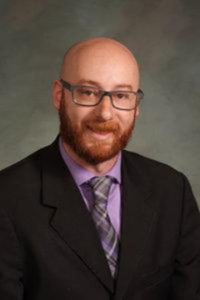
An Interview with Catherine Strode
State Representative Jonathan Singer (House District 11) is sponsoring a bill to investigate allegations of abuse of children/youth in out-of-home placement and under the continuing jurisdiction of the court. House Bill 18-1346 offers protections for youth under the age of 21 from institutional child abuse. The bill is a direct outcome of the state’s 2017 shutdown of El Pueblo, a treatment center for youth. Children at the Center gave reports of being starved and abused.
In an interview with Catherine Strode, Representative Singer who is a former social worker says he is committed to making sure all youth in Colorado’s systems are treated fairly. This, he says, is not a partisan issue.
What problem does this bill address?
“House Bill 18-1346 is to make sure we protect our more vulnerable youth. When I say youth, it is not just people under the age of 18. In our Youth Services System, kids are in our custody up through the age of 21. The bill says every person who is in our Youth Services System regardless of their age, if harm has come to them, our county departments need to investigate. Right now, when anyone under the age of 18 has been abused, mistreated, or neglected in our Youth Services System, our county Human Services Departments investigate to make sure those kids are being treated properly. After the age of 18, that line wasn’t there. Some counties would investigate. Some counties would throw up their hands and say, ‘They are adults. We’re not going to investigate.’ The problem we are trying to solve is to ensure when kids are mistreated in our Youth Services System (whether they are 18, 16, or 20) we make sure they are being treated properly and not being abused, not being neglected.”
Why is there a need for the bill now?
“We heard of an awful situation at El Pueblo where kids were neglected, abused. People who were experiencing mental health crises were left to their own devices. Kids literally suffering, in horrible situations. They were picking off their own skin and eating it. They were not being treated the way they should be; their problems were not being addressed the way they should be. Fortunately, we have shut down those agencies. Ultimately, our own state Department of Human Services started to look at the problem and said, ‘Our law isn’t clear. Some of our counties are unsure of the law as well.’ They know if a 16-year-old is getting hurt in our system, our counties need to investigate. What they weren’t sure of was if that person was 18, 19, or 21, whether they should use the same safeguards. This bill just makes it very clear that it is for everybody, regardless of their age.”
What youth populations will this bill impact the most?
“A lot of kids in our Youth Services System that have committed crimes are children/youth that: have experienced mental health episodes, have tough family environments, or have experienced some sort of traumatic brain injury. These are children/youth with disabilities, whether they are physical or, more than likely, psychological. More often than not, the children in our Youth Corrections System are people of color, minorities, and from economically disadvantaged environments. They don’t have the same resources in terms of parents that can hire lawyers to stick up for them and make sure they are treated fairly and equally. Last year, we changed the name of our Youth Corrections System to our Youth Services System. The reason we did that is because we’re not training kids to be better prisoners. We are training them to be adults, and citizens, and taxpayers. If we are actually going to do that, our job shouldn’t be to treat them like prisoners. It should be to treat them like kids who need help. What they have done is serious but our response needs to be age appropriate. That is the whole crux of what we are trying to do as a state: to move away from creating better criminals and move towards actually creating people who are better citizens.”
Where do you draw your passion from for this issue?
“I was a social worker before I did this. I worked in our Youth Services System. I worked with kids that were going through our juvenile courts, kids that had been abused and neglected by their families. You could see how the rules of the game were often written by the people that were least affected by them. I chose to take this job so I can cut through the red tape, write the rules of the game the way they should be for our kids. It has been a personal passion for me since 2012: to make sure every kid gets a fair shot at a good life. As a state, we are trying to find ways to keep kids out of the system. It’s expensive. We know the results aren’t always the best. When they are in the system, I think it’s really important we provide every resource to ensure they can get out of that system to save the taxpayers money and to make sure they get a fair shake.”
 Catherine Strode is Advocacy Denver’s Communications and Policy Specialist. She holds a Masters degree in Public Administration with an emphasis in Health Care Policy. Catherine publishes Policy Perspective, featuring interviews with state policy makers on issues that affect the work and mission of Advocacy Denver.
Catherine Strode is Advocacy Denver’s Communications and Policy Specialist. She holds a Masters degree in Public Administration with an emphasis in Health Care Policy. Catherine publishes Policy Perspective, featuring interviews with state policy makers on issues that affect the work and mission of Advocacy Denver.
